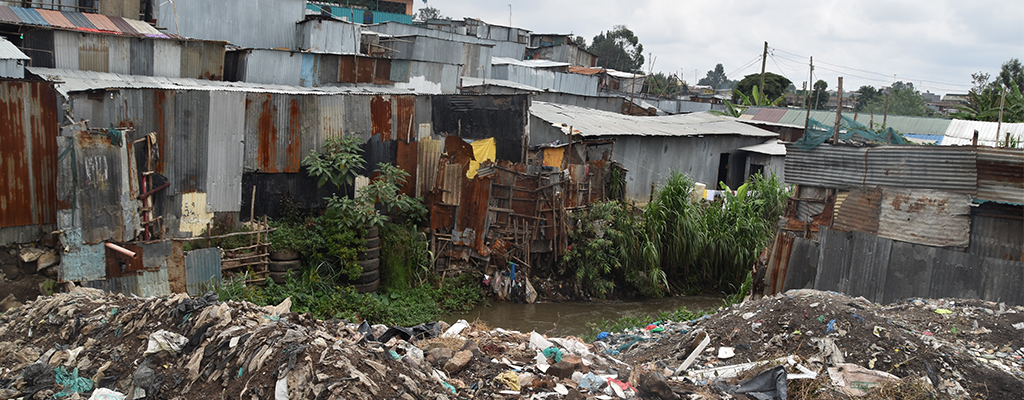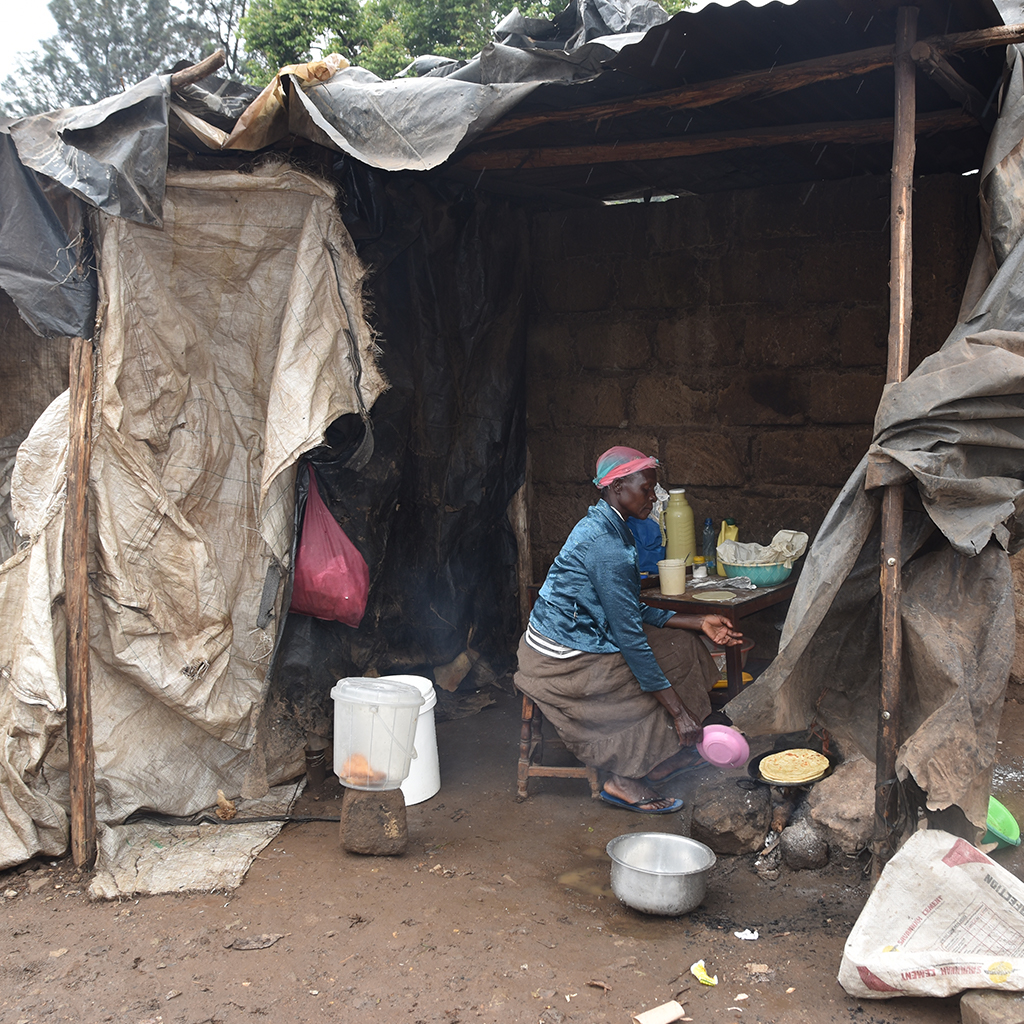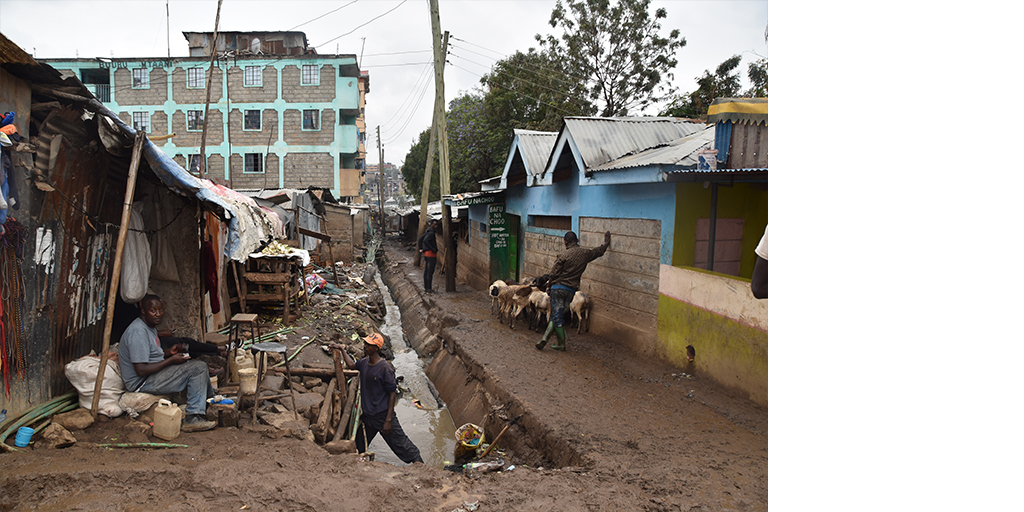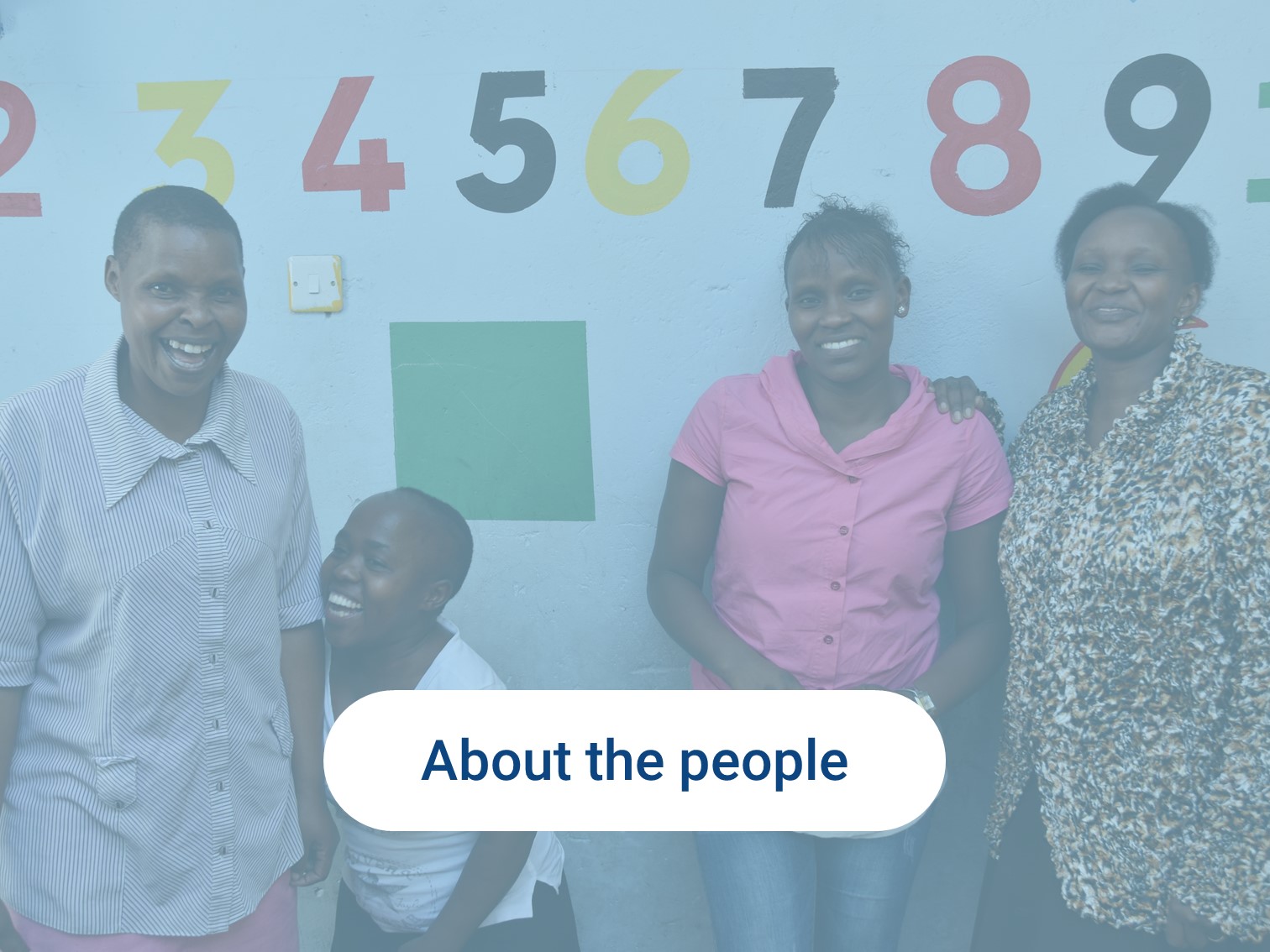
Life in the slum of Mathare, Nairobi
The living conditions in Mathare are unhygienic, unhealthy and inhumane - but many of the residents of Nairobi cannot afford better housing and live with their families in a very small space. Understandably, under these circumstances, parents or guardians do not have the opportunity to invest in school education for their children. But this is essential for positive sustainable changes.
It is therefore particularly necessary and important to give children free access to education and to support them where the family cannot afford it. Even if the slum dwellers in Mathare have created their own community system over the years, in which they support and are there for each other, nobody in this world should have to live under these circumstances - nobody voluntarily exposes themselves to such conditions.
Let's change this situation together!
4 million
60 percent
(slums) of Nairobi.
2,5 m²
person in these areas.
4 million
Menschen wohnen in
Nairobi.
60 percent
von ihnen leben in den
Slums.
2,5 m²
Wohnfläche
stehen dabei im Schnitt einer Person zur Verfügung


Slums are informal settlements in which most people live in intolerable housing conditions. They lack fundamental facilities such as access to water and sanitation facilities, leading to increased health risks. The people are being economically neglected and socially excluded. (Source: UN-HABITAT)
Slums, auch genannt Elendsviertel, sind Siedlungen, in denen die meisten Menschen in unzumutbaren Unterkünften leben. Ihnen fehlen grundlegende Versorgungs-einrichtungen wie Zugang zu Wasser sowie sanitäre Einrichtungen, sodass sie erhöhten Gesundheitsrisiken ausgesetzt sind. Die Menschen werden wirtschaftlich vernachlässigt und gesellschaftlich ausgegrenzt. (Quelle: UN-HABITAT)



